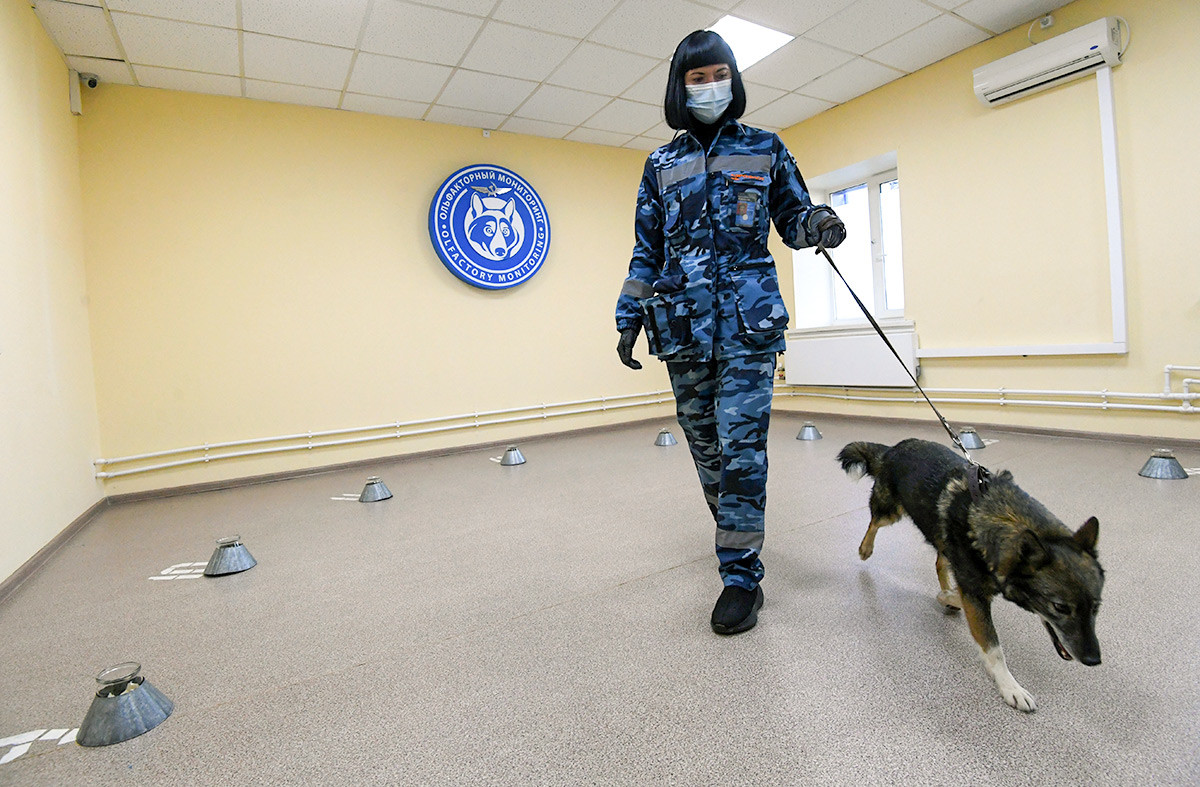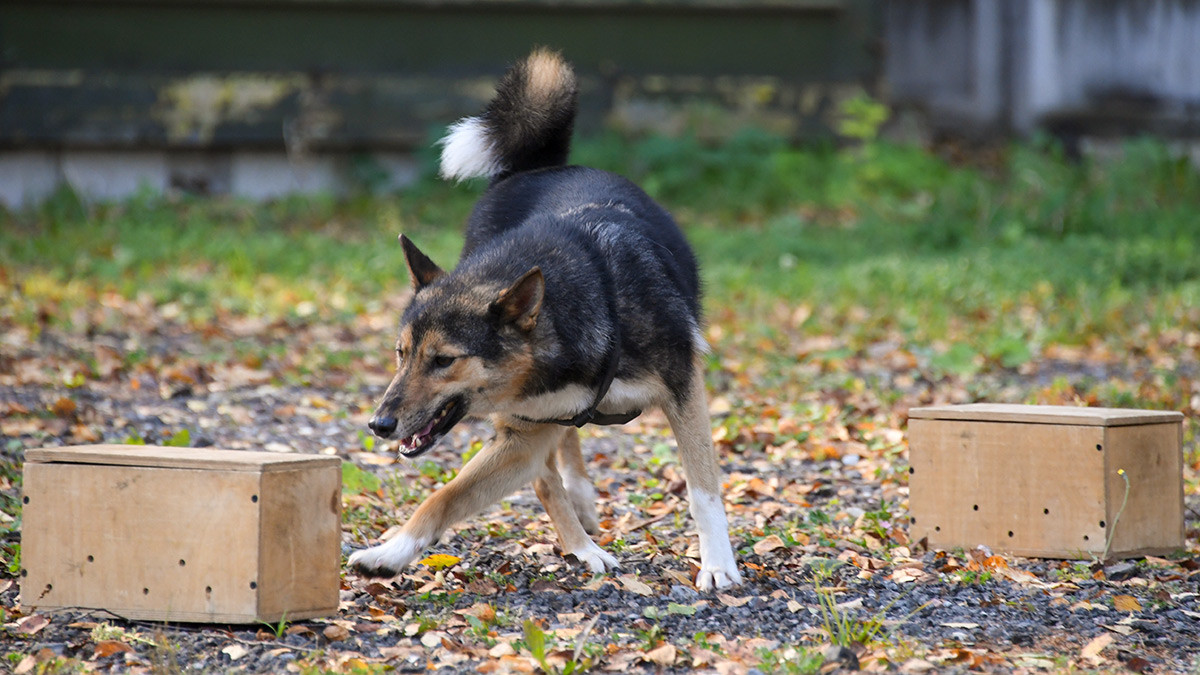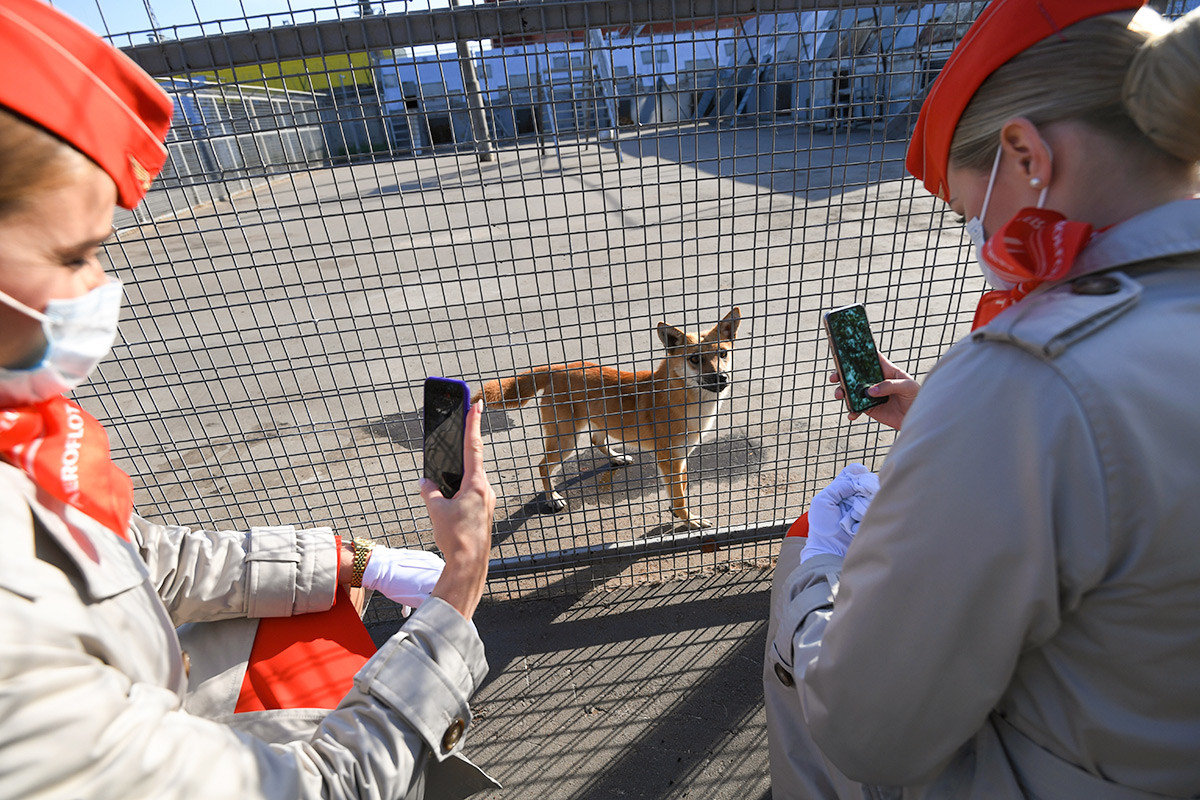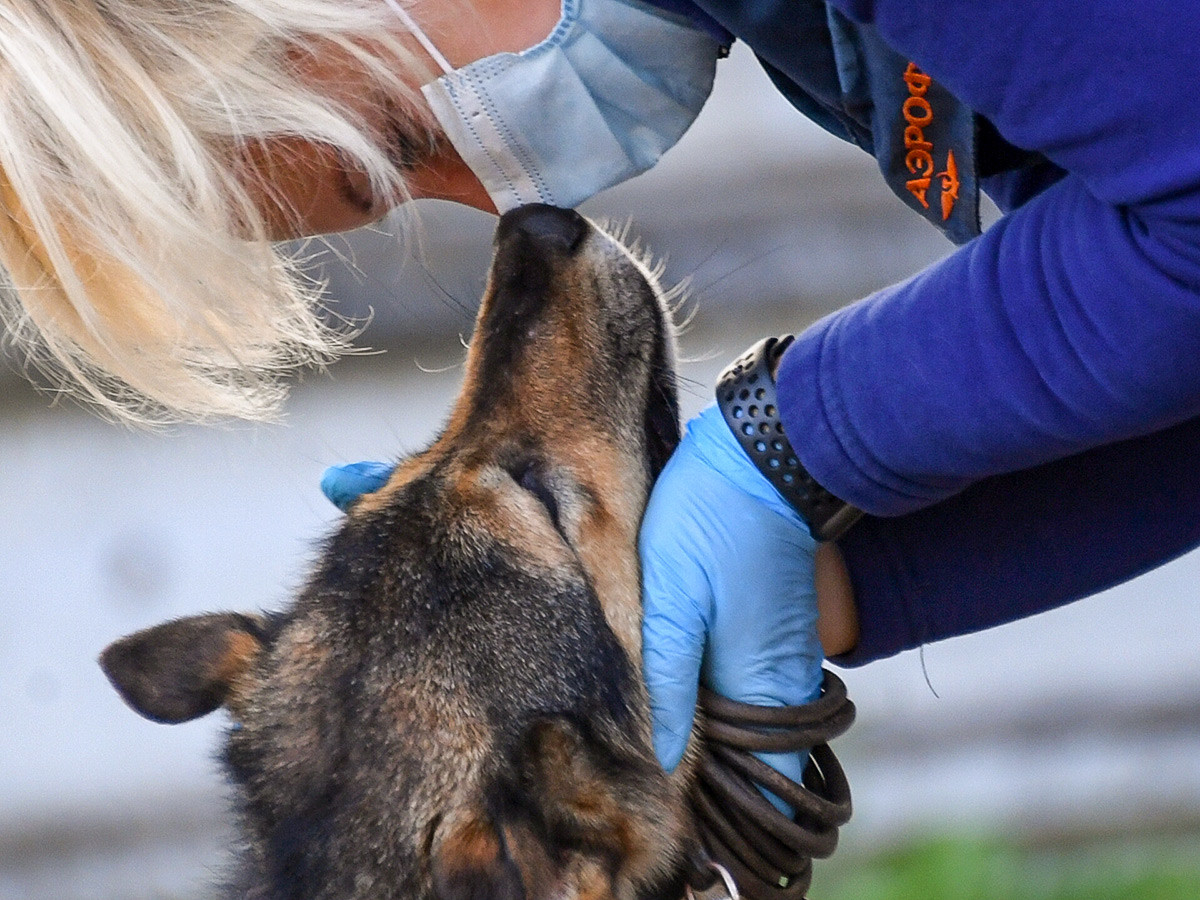![Training a Shalaika breed dog [a jackal-dog hybrid] of a patrol canine unit at Sheremetyevo International Airport](https://mf.b37mrtl.ru/rbthmedia/images/2020.10/original/5f887b0615e9f90e351654a4.jpg)
Training a Shalaika breed dog [a jackal-dog hybrid] of a patrol canine unit at Sheremetyevo International Airport
Mikhail Japaridze/TASSAt Moscow’s Sheremetyevo International Airport, dog handlers hired by Aeroflot have started training 15 Shalaikas (a cross between a husky and jackal). They will be trained to detect COVID-19 carriers by smell. The announcement was made by Russian Deputy Prime Minister Tatyana Golikova on October 2, 2020.
“We have a schedule, our leading institutes have the necessary biological samples and there’s a team of volunteers for the dogs to train on. We’re about halfway through so far, using various biomaterials,” said Golikova.

A dog handler trains a service dog to search for COVID-19 patients at the Aeroflot canine unit at Sheremetyevo airport, in Moscow, Russia. 01/10/20
Kirill Kallinikov/SputnikShe stated additionally that some of the dogs are able to detect people carrying explosives or even suffering from cancer, all based on smell.
![Training a Shalaika breed dog [a jackal-dog hybrid] of a patrol canine unit at Sheremetyevo International Airport](https://mf.b37mrtl.ru/rbthmedia/images/2020.10/original/5f88793285600a26322e5dc2.jpg)
Training a Shalaika breed dog [a jackal-dog hybrid] of a patrol canine unit at Sheremetyevo International Airport
Mikhail Japaridze/TASS“Reducing the time that COVID-19 carriers spend in public areas and on boarding and disembarking from planes will reduce the risks for those in the vicinity,” added Anna Popova, head of Rospotrebnadzor (the Federal Service for Surveillance on Consumer Rights Protection and Human Wellbeing).

One of the service dogs of the shalayka breed (a hybrid of a Jackal and a husky) during training in the canine division of the Aeroflot airline at Sheremetyevo airport
Kirill Kallinikov/SputnikA standard training session lasts 30 minutes, after which the Shalaikas need to rest for an hour. During training, the dogs are introduced to a new scent, then instructed to find it among the biomaterials of healthy donors and show it by barking or tail-wagging, it was explained in a report on the TV station Rossiya 1.

Employees of Aeroflot at the aviary with service dogs of the shalayka breed of the canine division of Aeroflot airlines at Sheremetyevo airport
Kirill Kallinikov/SputnikHow the furry defenders will sniff out passengers at airports in actual practice is still an unknown quantity.
“We are currently discussing with our partners how it will work. It might involve using masks worn by passengers or saliva samples by which the dogs will identify infected parties,” explained Aeroflot CEO Vitaly Saveliev.

A dog handler with one of the service dogs of the shalayka breed of the canine division of the Aeroflot airline at Sheremetyevo airport
Kirill Kallinikov/SputnikThe dog training at Sheremetyevo Airport will be completed by December 2020, after which the canine unit is due to start work in January 2021. We expect paw-fect results.
READ MORE: Specially-bred canines helping to find explosives at Moscow airport
If using any of Russia Beyond's content, partly or in full, always provide an active hyperlink to the original material.
Subscribe
to our newsletter!
Get the week's best stories straight to your inbox